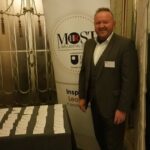British-Hungarian Physicist Dennis Gabor is quoted as saying “The future cannot be predicted, but futures can be invented.” I’m taking that approach to my 2023 predictions – instead of offering cast-iron guarantees or hopeful projections, I will set out my perspectives on what we will invent this year as our near future. Here goes:
1. We will invent a new HR model
This is not about painfully naval gazing on what the function is called, but fundamentally closing a gap in its operating model. We have processes, people and systems. But we pay scant attention to the products that people at work use at all levels, so we need to urgently fuse that into our 2023 way of operating.
This is about focusing on the things we create as products. We can talk about our ‘people experience’ all we like, but if our products aren’t up to the task, it’s hollow rhetoric. So let’s invent product management within the HR ranks and a new model as a consequence.
The new year is a good time to consider how we want to set boundaries and focus on our working interactions in a more conducive way.
2. We will reinvent relationships at work
We’ve had to withdraw from a lot of our connections in person and rely on digital means to keep in touch, grow and share our lives and working world. We don’t need to go back to how it was pre-2020, but we certainly have to rethink and reinvent what relationships at work mean to us, who matters the most and what we may have lost since the pandemic changed this dynamic.
We need to invent a new version of the ‘social fabric’ of work. While I’ve often cringed about Gallup’s ‘Best Friend at Work’ category, there’s something special about being part of a working environment with people who have your back. It makes a world of difference when colleagues respect and regard what you do, how you are and what you bring, and your differences and uniqueness.
Inclusion and belonging are often key to corporate agendas specifically around protected characteristics and it is that, and beyond. For too long, we’ve either had overly functional relationships at work or we have felt forced into participating with people in an inauthentic way.
The new year is a good time to consider how we want to set boundaries and focus on our working interactions in a more conducive way.
However we view it, relationships do matter at work, and it would be worth HR spending time on its relationship with business colleagues and formalised unions, helping steward more conversations so that people – in both their teams and more widely – review, reinvent and strengthen their relationships.
Organisational effectiveness needs to become the centre of what true value is in the working world.
3. We will invent a better way to show value and how we value people
We simply cannot continue on the extractive, damaging, unequal distribution of wealth. Many forward-thinking economists agree on this.
We need economic systems and measures invented that show what we can and should value and what really is the value we all create. That can – and should – begin in workplaces. HR has the opportunity to help organisations apply, report and be aware of all forms of value – and by value I don’t just mean that which leads to profit or balanced books. Rather I am referring to prosperity measures that are more holistic, regenerative and equitable in showing what we value.
Organisational effectiveness needs to become the centre of what true value is in the working world. It is especially important in establishing investment, financial obligations and rewards at a time of increasing recessionary measures.
4. We will invent more adaptable organisation design concepts
Fresh approaches to organisation design will help protect our operations when recessions, convulsive shocks and unforeseen disaster scenarios (such as freak weather, cyber-crime and societal/political unrest) arrive. This will ultimately enable organisations to become true safe houses in stormy situations.
We saw a lot of this in the pandemic response, but we still need more deployable approaches. Whilst we can’t plan for everything, such approaches will allow us to be prepared enough that we do not go into chaotic, panic-stricken situations. They will also enable us to maintain a place of safety and adapt our operations even in the most challenging of circumstances.
Strategic workforce planning should not be limited to bench strength or high potential people, it should contribute to how we cope in disaster situations and offer an anti-fragile approach that helps us stabilise.
We have the power to invent our 2023
These four inventions (or reinventions) in four crucial areas of work are not nice to haves – they are the new HR essentials. Our invented futures essentials.
Want more on this topic? Read ‘How to create radically just workplaces in 2023 and beyond.’
[cm_form form_id=’cm_65a14c3f5da64′]






